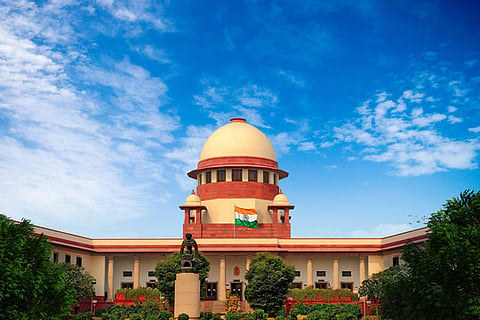

The Supreme Court on Wednesday, July 23, criticised the Telangana government's domicile policy for medical admissions, calling it disconnected from the ground reality, as reported by The Times of India.
The policy currently requires students to have studied from Classes 9 to 12 in Telangana in order to qualify for state quota medical seats through National Eligibility Entrance Test (NEET).
A bench comprising Chief Justice of India BR Gavai and Justices K Vinod Chandran and Joymalya Bagchi questioned the fairness of this rule.
“Many students go to places like Kota for better coaching for medical and engineering entrance exams. Should they be denied admission simply because they studied Class 11 and 12 outside Telangana?” the bench asked.
Emphasising the need for a more humane and inclusive approach, the Chief Justice stated, “We do not want such students to suffer. All students whose parents are domiciled in Telangana should be considered eligible for state quota seats, regardless of where they completed their higher secondary education.”
The court warned the state government to address the issue, saying, “Either you resolve it, or we will set it right.”
Advocate Raghenth Basant, appearing for students affected by the current policy, highlighted the contradiction it creates. He pointed out that children of a person from Kerala, posted in Telangana for the last four years, would be eligible under the state quota if they completed Classes 9 to 12 in the state. However, students whose parents are native to Telangana but who studied outside the state are being denied eligibility, added TOI.
He urged the court to amend the criteria to ensure that children of all residents of Telangana are eligible for state quota medical seats, regardless of their place of schooling.
The Supreme Court has scheduled the next hearing for July 29 and directed the Telangana government to respond with its position on the matter by then.
